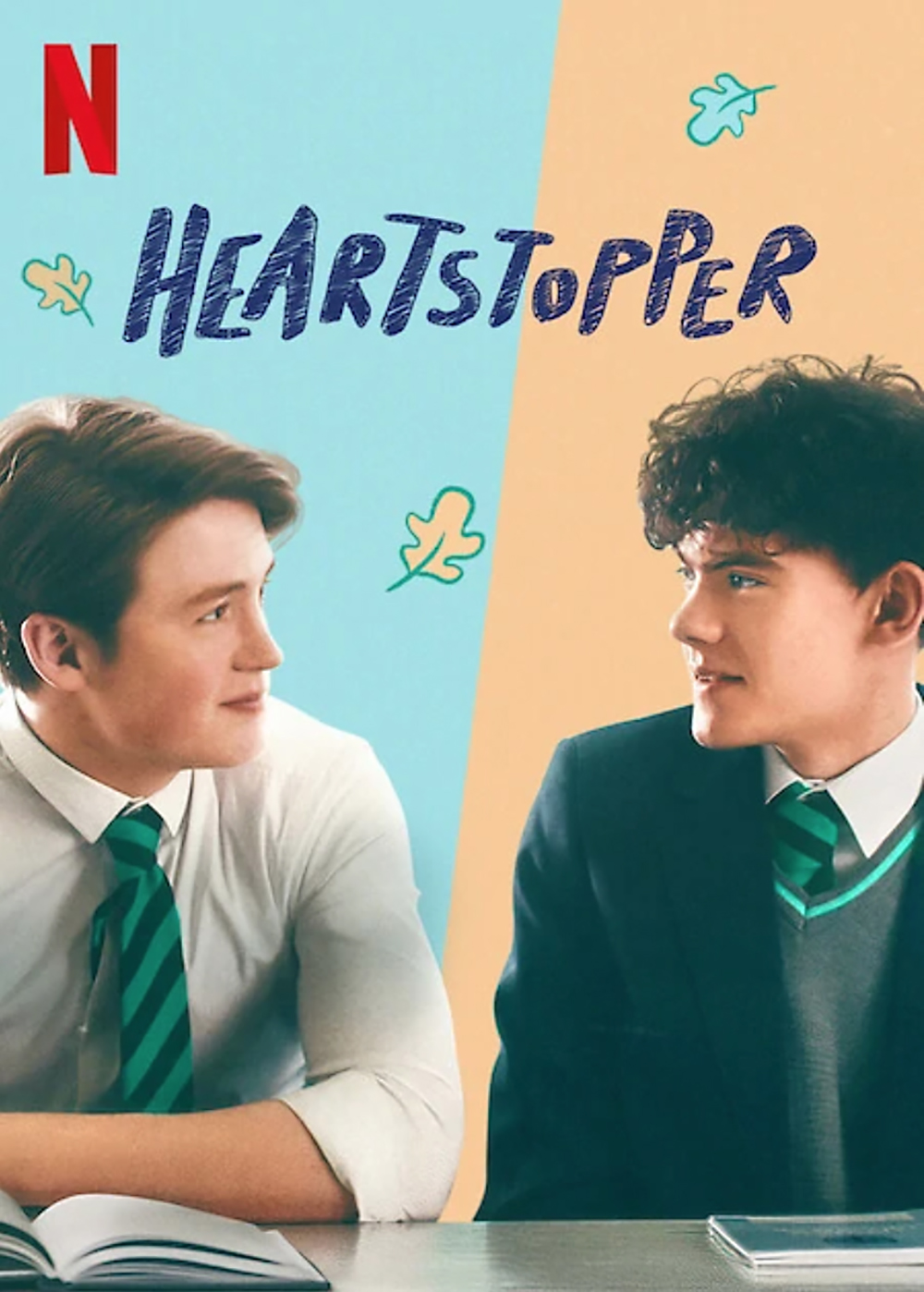Man, high school can be hard. Unless you are in that environment, you might forget about it or look back on it with a distorted sense of nostalgia. As a high school teacher of 20 years — and now a mother of a high schooler — I know this firsthand. My school distributed yearbooks last week, and the senior quote of a student with whom I am very close was, “I was supposed to be having the time of my life,” by Sylvia Plath. That really sums it up for some kids. Unless you were super popular, you likely have a story of feeling lonely or misunderstood when you were in high school.
I saw a trailer for a new Netflix show a couple of weeks ago that was so incredibly refreshing. Heartstopper, based on the graphic novels by Alice Oseman, takes you into a world of 10th and 11th graders at both an all-boys and all-girls school in England. Openly gay Charlie Spring is seated next to popular rugby player Nicholas Nelson in form, the English equivalent of homeroom. A new, unlikely friendship blossoms between them as the story begins. It accurately portrays the fears, uncertainties, and self-discoveries that high school students routinely experience. Ultimately, we experience the fear, excitement, confusion, sadness, and happiness that is high school. This is the most relevant show for a high school teacher that I have ever seen. Let me explain why.
We can have all the diversity and inclusion training, and training on how to properly handle bullying that exists, but learning about it and seeing it put into action are two completely different things. In Heartstopper, the art teacher, Mr. Ajayi, expertly portrayed by British actor Fisayo Akinade, offers his classroom as a safe space for Charlie to come at lunchtime. They discuss how he was bullied so badly the previous year when Charlie was publicly outed. Mr. Ajayi, a gay man himself, discusses how terrible school was for him, saying at one point he just had to “suffer.”
Writer and LGBTQ+ activist Alexander Leon said, “Queer people don’t grow up as ourselves, we grow up playing a version of ourselves that sacrifices authenticity to minimise humiliation and prejudice. The massive task of our adult lives is to unpick which parts we’ve created to protect us.” Navigating high school is hard enough. Pretending to be someone you are not out of fear of bullying, not being accepted, or even being kicked out of school in the cases of some religious or private schools, solely based on who you are, is a tremendous weight that many LGBTQ+ students carry.
I have had several students talk to me about the impact Heartstopper has had on them. One former student of mine (they/them) discussed how it made them feel seen and validated to have a positive bisexual character in a show. They said that they never felt more understood. Positive representation of all marginalized groups in film and television is extremely important for this very reason.
Self-identity is a tricky beast, even when sexuality is not involved. I watch kids try to figure out who they are on a daily basis. I remember having those feelings as a teen, wondering where I fit in. Knowing that someone out there understands and accepts you, and having a safe place to go, can make all the difference in the world, especially in the time of book bans and so-called “Don’t Say Gay” and “bathroom” bills restricting the way gay, queer, and trans identities can be expressed in school, the exact place where young people are learning who they are and how to show that true self to the world.
Heartstopper is a stunningly beautiful representation of what it is like for kids in high school these days. I am thrilled that a show like this exists for queer kids to see themselves represented in such a beautiful and positive light. As a teacher, it has pushed me to go a step further in being there for those kids who may be viewed as outcasts or feel like they don’t belong. It has pushed me to educate others about what many of our students face each day. Take the time to watch the show. It is positive, uplifting, and unlike any series I have ever seen. You will laugh, cry, and remember how you felt when you first fell in love. Most importantly, you might reevaluate how you handle situations with students in your classroom.
Melanie W. Morton is a high school Spanish teacher originally from Memphis.
